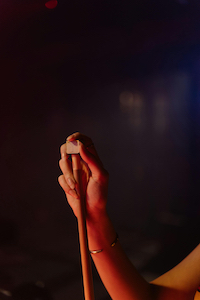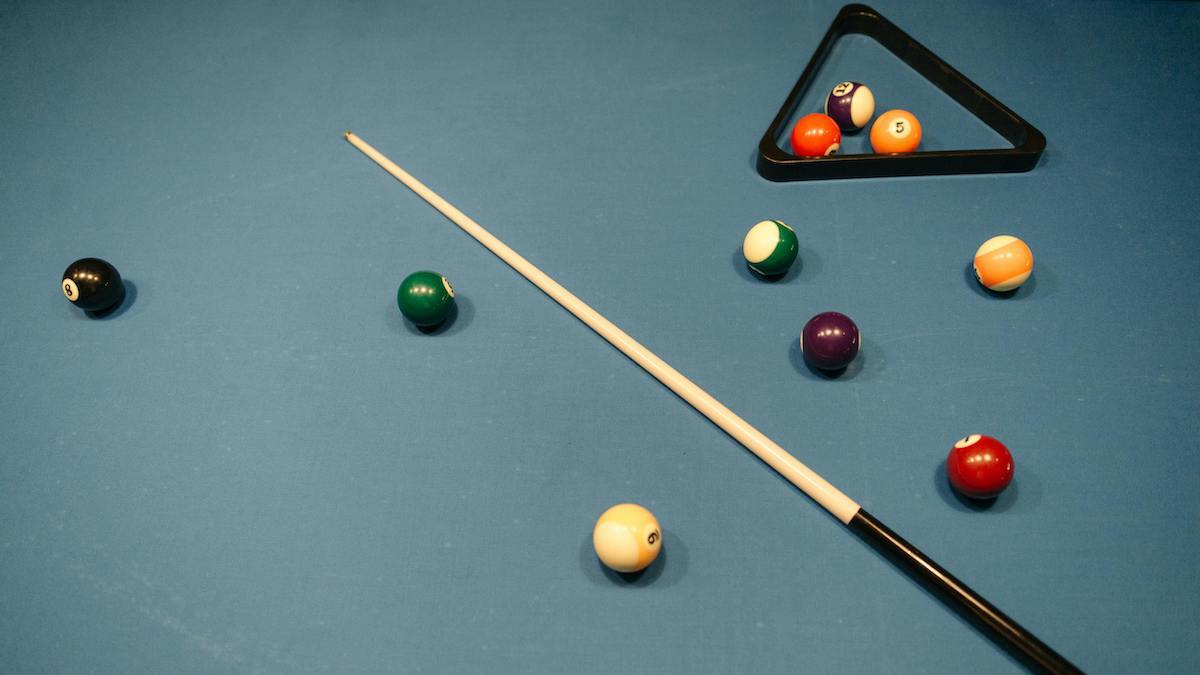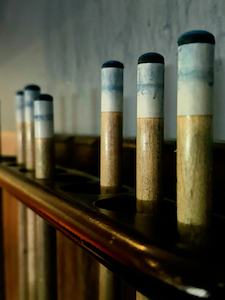How to Care for Your Pool Cue: 4 Pool Cue Maintenance Tips
Posted by Home Billiards on 15th Apr 2025
Imagine lining up the perfect shot, only to have your cue slip or misfire because it’s worn, warped, or neglected. Frustrating, right? Your pool cue is more than just equipment—it’s your trusted partner in every game. Proper care isn’t just about keeping it clean; it’s about preserving its precision, balance, and performance for years.
In this guide, we’ll show you how to maintain your cue like a pro, from daily cleaning habits to deep care techniques and storage tips. Whether you’re a casual player or a seasoned billiards enthusiast, these practical steps will help protect your investment and keep your cue in top shape for a lifetime of great shots.
Here’s what we’ll cover in this guide
- Why Pool Cue Maintenance Matters
- Daily Pool Cue Care Tips
- Deep Cleaning Your Pool Cue
- Proper Storage Practices
- Preventing Common Issues
- When to Seek Professional Help
- Recommended Products for Pool Cue Maintenance
Let’s dive in!
Why Pool Cue Maintenance Matters
Your pool cue is more than just a piece of equipment—it’s an extension of your skill and precision. Regular maintenance keeps it performing at its best, ensuring every shot feels smooth and controlled. A well-maintained cue improves your game and extends the life of this valuable tool.
Neglecting your cue can lead to a host of problems. Over time, dirt and chalk build-up can affect the shaft’s smoothness, making it harder to execute accurate shots. Worse, improper care can cause the cue to warp or bend, throwing off its balance and making it nearly impossible to play effectively. The tip, arguably the most critical part of the cue, can also wear down or become damaged, reducing your ability to control the ball and put it in the pockets where it belongs.
Daily Pool Cue Care Tips
Caring for your pool cue doesn’t have to be complicated. A few simple habits can go a long way in keeping it in excellent condition. Making these steps part of your routine will protect your cue and ensure it’s always ready for your next game.
1. Wipe Down After Use
After every game, take a moment to wipe down your cue with a clean microfiber cloth. This removes chalk residue, dirt, and oils from your hands that can build up over time. These substances may seem harmless, but they can affect the smoothness of the shaft and even lead to long-term damage. A quick wipe keeps your cue clean and performing at its best.
2. Avoid Over-Chalking

While chalk is essential for improving grip and control on the cue ball, too much of it can be harmful. Excess chalk often transfers to the shaft, creating a gritty layer that can wear down the wood or finish. Use just enough chalk to coat the tip lightly, and avoid grinding the chalk into it. This small adjustment will help preserve both the tip and shaft.
3. Inspect the Tip Regularly
The tip is where all the action happens, so keeping it in good shape is crucial. Check it regularly for signs of wear, flattening, or damage. A worn-out tip won’t hold chalk properly, making it harder to control your shots. If you notice any issues, consider reshaping or replacing the tip to maintain accuracy.
Deep Cleaning Your Pool Cue

Daily care keeps your pool cue in good shape, but dirt, oils, and chalk can build up on the shaft over time. This can make your cue feel sticky and affect its performance. A deep clean every so often will restore its smoothness and ensure it glides effortlessly through your hands.
Cleaning the Shaft
For a thorough clean, tools like the Q-Wiz are excellent. The Q-Wiz is a double-sided disc with one side designed for cleaning and the other for polishing. Start by using the cleaning side to remove dirt and chalk residue. Hold the Q-Wiz in your hand and gently rub it along the shaft in long, even strokes. This process lifts grime without damaging the wood or reducing the shaft’s diameter. After cleaning, wipe down the shaft with a soft cloth to remove any remaining particles. The Q-Wiz is reusable—just rinse it under water and let it dry before storing it for future use.
If you don’t have a Q-Wiz, use a damp cloth with a small amount of cue cleaner or rubbing alcohol. Work in sections, applying light pressure to dissolve stubborn grime. Avoid harsh chemicals, as they can dry out or damage the wood.
Polishing for Smoothness
Once the shaft is clean, polishing ensures it feels smooth and slick. Flip the Q-Wiz to its polishing side or use a cue wax for this step. Apply the wax sparingly with a soft cloth, then buff it into the shaft using medium pressure and quick strokes. This seals the wood’s pores, protecting it from moisture while restoring its silky finish. Polishing not only improves how your cue feels but also prolongs its lifespan.
Additional Maintenance for Your Setup
While caring for your cue, don’t forget about your playing environment. A clean table makes a big difference in how well you play. For detailed instructions on maintaining your table, check out this step-by-step guide on how to clean a pool table.
Proper Storage Practices

How you store your pool cue is as important as how you clean it. Proper storage keeps your cue safe from environmental damage and keeps it straight, balanced, and ready for action. A few simple practices will go a long way in preserving its condition.
Use a Quality Cue Case
Investing in a good cue case is one of the easiest ways to protect your cue. A sturdy case shields it from dust, dirt, and accidental scratches. More importantly, it safeguards the cue against moisture, which can seep into the wood and cause warping. Choose a case with padded compartments to secure the shaft and tip during transport. Whether storing your cue at home or taking it to a tournament, a quality case offers peace of mind.
Avoid Extreme Temperatures
Wood is sensitive to changes in temperature and humidity, so avoid exposing your cue to extreme conditions. Heat can dry out the wood, causing cracks or warping, while excessive moisture can lead to swelling or bending. Store your cue in a climate-controlled area—away from direct sunlight, heaters, or damp basements. If you’re travelling with your cue, don’t leave it in a hot car or outside in cold weather for extended periods.
Store Upright or Flat
Proper positioning is key to preventing bending or warping over time. When not in use, store your cue upright in a rack or flat in its case or storage drawer. Never lean it against a wall or leave it on uneven surfaces for long periods. These positions can cause the shaft to bend, affecting its balance and performance. A dedicated cue rack is a great solution for keeping your cues upright and secure.
Preventing Common Issues
Even with regular maintenance, pool cues can experience common issues like warping or minor dents. Knowing how to prevent these problems—and what to do if they occur—can help you keep your cue in top condition and avoid costly replacements.
Warping Prevention
Warping is one of the most frustrating issues for cue owners, as it can completely throw off your game. To keep your cue straight, always store it properly. Avoid leaning it against walls or placing it on uneven surfaces, which can cause the shaft to bend over time. Instead, use a cue rack or a padded case to ensure it stays upright or flat. Additionally, protect your cue from extreme temperatures and humidity, as these environmental factors contribute to warping.
If you suspect your cue has warped, roll it gently on a flat surface to check for uneven movement. While minor warping may be fixable with professional help, severe cases often require replacing the cue.
Fixing Minor Dents
Accidents happen, and even the most careful players may find minor dents or nicks in their cue. You can try steaming minor dents out at home. Place a damp cloth over the dent and press a hot iron onto the fabric for a few seconds. The heat and moisture help expand the wood fibres, reducing the appearance of the dent. Be cautious with this method—too much heat can damage the finish.
It’s best to consult a professional repair service for deeper dents or more extensive damage. They have the tools and expertise to restore your cue without compromising its integrity.
When Replacement Is Necessary
Sometimes, despite your best efforts, a damaged cue may need replacing. If your cue is beyond repair or you want to upgrade to something more durable, explore our billiard cues for high-quality options. Investing in a reliable replacement ensures you’ll continue playing with precision and confidence.
When to Seek Professional Help
Scenarios That Require Professional Services
Some tasks are best left to the pros, especially when precision is key. For example, replacing a worn or damaged tip requires skill to ensure it’s properly shaped and securely attached. A poorly installed tip can affect your game and even damage the ferrule. If your cue tip is no longer performing as it should, it’s time to consult an expert.
Refinishing is another job that benefits from professional attention. Over time, the shaft’s finish may wear down, leaving the wood exposed to dirt and moisture. Professionals can refinish the shaft, restoring its smoothness and protective coating without altering its dimensions. Similarly, if your cue develops severe warping or deep dents, a repair specialist can assess whether it’s salvageable and fix it.
The Value of Regular Tune-Ups
Like any sports equipment, your pool cue benefits from regular check-ups. Scheduling periodic tune-ups with a professional ensures that minor issues are addressed before they become more significant problems. Experts can clean, polish, and inspect your cue for signs of wear that you might miss. This proactive approach extends the life of your cue and keeps it performing like new.
Whether a simple tip replacement or a complete refinishing job, professional services are an investment in your cue’s longevity and performance. Don’t hesitate to reach out to an expert when your cue needs a little extra care!
Recommended Products for Pool Cue Maintenance

Having the right tools and products makes it easier to care for and keep your pool cue in excellent condition. These essentials are affordable, easy to use, and designed to protect your cue for years of reliable performance.
Microfiber Cloths
A simple microfiber cloth is one of the most versatile tools for cue maintenance. Use it daily to wipe down the shaft and remove chalk residue, oils, and dirt. Microfiber cloths are gentle on the wood and won’t scratch the finish, making them ideal for regular cleaning.
Shaft Cleaning Kits
A shaft cleaning kit is a must-have for deeper cleaning. These kits often include cleaning solutions and polishing tools like the Q-Wiz. They’re designed to remove stubborn buildup without damaging the wood or altering the shaft’s smoothness. Regular use of a cleaning kit ensures your cue feels like new after every session.
Cue Tip Shapers/Scuffers
Maintaining the tip is crucial for accurate shots, and cue tip shapers or scuffers simplify this task. These tools help you reshape worn tips or roughen the surface to hold chalk better. Keeping your tip in top condition improves your control over the cue ball and enhances your overall performance.
Quality Cue Cases
Protecting your cue starts with proper storage, and a high-quality cue case is essential. Look for cases with padded compartments to shield your cue from dust, moisture, and accidental damage during transport or storage. A good case ensures your cue stays straight and safe, no matter where you take it.
These small investments make a big difference in maintaining your pool cue’s quality and extending its lifespan. With the right tools, caring for your cue becomes effortless!
Frequently Asked Questions about Pool Cue Maintenance
How can I check if my pool cue is warped?
Check if your pool cue is warped by rolling it on a flat, smooth surface like a pool table. Watch for any gaps or wobbling during the roll. A straight cue rolls evenly without lifting off the surface, while a warped cue wobbles or lifts at points along the shaft.
What are joint protectors, and do I need them?
Joint protectors are small caps that screw onto the joint ends of a pool cue to prevent damage and keep debris out. Use joint protectors to protect the threads and maintain cue alignment during storage or travel. They are essential if you frequently disassemble your cue.
How often should I replace my pool cue tip?
Replace your pool cue tip every 6 to 12 months, depending on usage and playing style. Signs you need a new tip include excessive flattening, mushrooming, or reduced grip on the cue ball. Frequent players may need replacement more often to maintain consistent performance.
What’s the difference between a soft and hard pool cue tip?
The main difference between a soft and hard pool cue tip is impact and control. Soft tips absorb more impact and offer better cue ball control and spin but wear faster. Hard tips last longer and deliver more power but provide less spin and a firmer hit feel.
Can I use household cleaning products on my pool cue?
Do not use household cleaning products on your pool cue. These chemicals can damage the finish, dry out the wood, or affect the cue’s performance. Clean your cue with a damp cloth and use cue-specific cleaners for deeper maintenance to protect the shaft and preserve smoothness.
Pocket the last ball
From smooth strokes to precise shots, your pool cue is more than just a tool—it’s a key part of your game, and with proper care, it can last a lifetime. By following the tips in this guide, you’ll keep your cue performing at its best. Regular maintenance, smart storage, and professional tune-ups will protect your investment and ensure every game feels as good as the first.
If you’re ready to take your game to the next level or need a reliable replacement, explore our selection of new pool cues for sale. With high-quality options designed for performance and durability, you’ll find the perfect cue to match your style and skill. Don’t wait—upgrade your equipment today and play with confidence!

